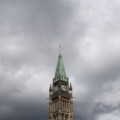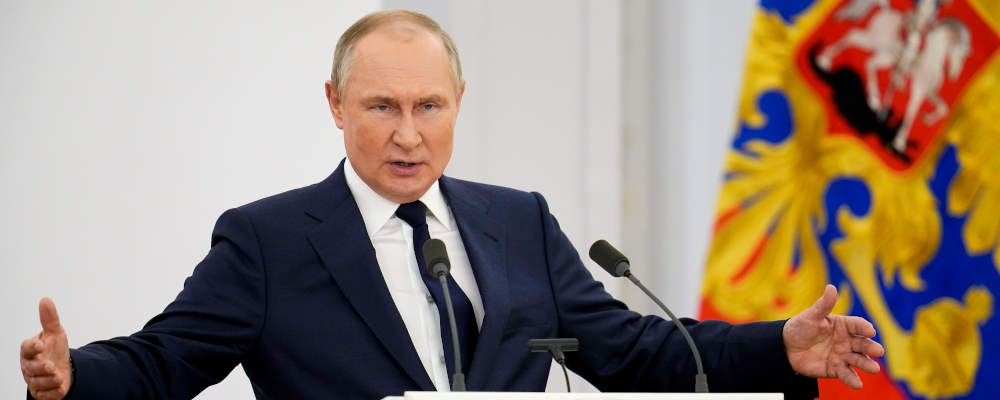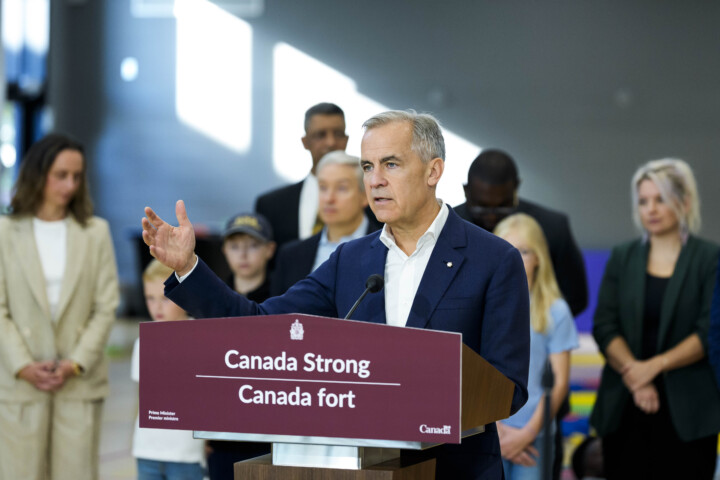“God is on the side of the battalions with the bigger cannon.”
Napoleon said that more than two centuries ago; he was right then and still is. And let us be clear: there is no doubt that the Russian army has the bigger cannon. But Napoleon also said that “In war the moral is to the physical as three is to one.” There is equally no doubt that the Ukrainian military has both morality and morale very much in its favour and, after more than ten weeks of fighting, Kyiv’s army is more than holding its own.
But what if Moscow’s forces get their military act together and crush the Ukrainians in the east and along Ukraine’s Black Sea coast? What then for Kyiv? For NATO and the West? For Russia and China?
Ukraine would be left a rump state, shorn of access to the sea and of much of its best agricultural land. The billions in reconstruction costs might still be paid by the West, but perhaps much slower, much less willingly than if Kyiv had won the war. The certainty is that Russia would not cough up funds to rebuild anything outside the territory it controls, and Moscow would not pay to resettle refugees in what‘s left of free Ukraine. There is also the very real possibility that without an eventual and equitable peace treaty, a long, dragged-out guerrilla war will be waged by Ukrainian forces in the occupied lands, something that would likely be backed covertly by the West and would certainly slow all reconstruction.
In Russia, any victory would boost Putin’s popularity with Russian nationalists. He will have beaten the Ukrainians and NATO and the West (or so he would proclaim) and he would continue his rule. His hope to reunite the former Soviet republics in his new Russia, with the possible exception of Belarus, however, will likely prove to be an impossibility in the short term. And in the event of victory over Ukraine, the West’s sanctions would stay in place for many more months, gradually weighing more harshly on the Russian economy, sparking increasing unemployment, higher inflation than the present 20 percent, and the near-certainty of a collapse of Russian industry and, without Western supplied components, military production.Are sanctions against Russia working? The Europeans will also sharply reduce their dependence on Russian oil and gas, possibly eliminating it entirely, cutting Moscow’s receipts of foreign funds. With its much larger population and a pre-war Gross Domestic Product no larger than Canada’s, Russia will then be sinking toward basketcase status. Victory will have come at a very high price, and it might yet spark an uprising against Tsar Vladimir’s ham-handed “special military operation.”
What is clear is that the West will not have been defeated in this war. Indeed, it will have emerged stronger and more united. With the likely membership of Sweden and Finland, NATO will be much stronger, now with an effective stranglehold on the Baltic Sea and with Latvia, Estonia, and Lithuania easier to defend.What you need to know about Finland’s and Sweden’s path to NATO membership Putin’s threats of moving nuclear weapons nearer the new member states will carry little weight, primarily because there were already Russian nuclear weapons in Kaliningrad. Almost every Western nation, Germany most particularly, has raised its defence spending (Canada regrettably much less than it should haveWhat increased military spending may mean for Canada’s budget), and Russia’s geostrategic situation has been left weaker than it was even before its military was revealed to be all hat and no cattle, as Texans might say.
In the rest of the world, Russia’s incompetent but brutal methods of waging war gave Moscow’s reputation a beating as the overwhelming United Nations General Assembly vote condemning the invasion in March made clear.“The UN General Assembly overwhelmingly adopted a resolution on Wednesday demanding that Russia immediately end its military operations in Ukraine. Known informally as the world’s ‘town hall’, the Assembly is where all 193 UN Member States have a voice. A total of 141 countries voted in favour of the resolution, which reaffirms Ukrainian sovereignty, independence and territorial integrity.” https://news.un.org/en/story/2022/03/1113152 Any Russian victory will have been a pyrrhic one, and efforts to rebuild its military, while certain to be attempted, will be costly. The necessary funds can only come from a depleted treasury and at a crushing cost to ordinary Russians. Again, such spending might just spark attempts to overthrow Putin’s regime.
Will China be emboldened by a Russian victory? Beijing has been tepidly supportive of Russia’s war, but it did little more than have its spokespersons issue statements and purchase some Russian oil at a heavy discount. China continues to eye Taiwan, of course, but President Xi now must worry that if he moved against the island, he would face a similar tough Western response and the very real possibility of a wider war that could bring in the United States, Japan, and possibly other nations. The one immediate gain for China is that Russia can no longer pretend to be its co-equal; it might even become a client state, begging for financial assistance. That would strengthen China and be a longer-term political and economic catastrophe for Moscow and Putin.
Very simply, Putin’s war can only be assessed as a disaster. He might “win” his special military operation, but Russia is certain to have been the loser. A great strategist in his own mind, Putin misjudged the Ukrainians, the West and NATO, the Swedes and the Finns, and the competence of his own military.
Some victory.
Recommended for You
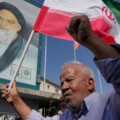
‘It was a harbinger’: How the 1979 Iranian Revolution still shapes the world

Doubling Canada’s non-U.S. exports is actually easy

Need to Know: Over half of Palestinians say Hamas’ decision to launch the October 7 attacks was correct
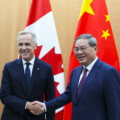
‘We’ve got a lot of vulnerabilities’: The risks involved with pursuing a ‘strategic partnership’ with China
